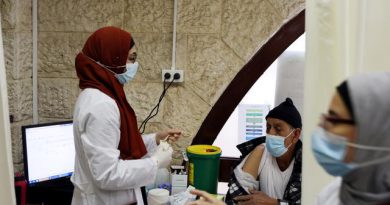Italy faces existential threat over low birthrate: President
Rome (Reuters) – Italy’s future is threatened by its diminishing birthrate, President Sergio Mattarella said on Tuesday, as new data showed the population had shrunk once again in 2019.
Italy’s growing demographic crisis, with births falling and life expectancy rising, is one reason for its chronically stagnant economy, and the situation is getting worse.
National statistics agency ISTAT said there were 435,000 births last year, down 5,000 on 2018 and the lowest level ever recorded in Italy. Deaths totaled 647,000 in 2019, some 14,000 more than the year earlier.
“This is a problem that concerns the very existence of our country,” Mattarella said shortly after the data was released. “The fabric of our country is weakening and everything must be done to counter this phenomenon.”
“As an old person I am well aware of the falling birth rate,” added Mattarella, who is 78.
Italy’s overall population fell by 116,000 to 60.3 million, with a steady rise in migrant and immigrant births helping to offset the declining domestic birth rate.
Many other European countries are suffering similar challenges, especially in ex-communist eastern Europe, while Germany has also seen a decline in domestic births partly offset by increased migrant and immigrant births.
Birth rates have held up better in France and Britain.
Italy’s population had risen virtually every year since World War One, hitting a peak in 2015 at 60.8 million, but has since started to decline.
ISTAT said the gap between births and deaths was getting wider, with just 67 newborns last year for every 100 people who died. Ten years ago there were 96 births for every 100 deaths.
Life expectancy in Italy has continued to push up, hitting 85.3 years for women and 81 years for men — one of the highest rates in Europe — while the average age in Italy is now 45.7.
Successive Italian governments have promised to do more to boost births, but have so far failed to resolve the problem.
The current administration has offered lower income couples grants of up to 160 euros ($175) per month to help cover costs during the first year of a baby’s life and also promised young families up to 3,000 euros a year to cover nursery charges.
($1 = 0.9159 euros)



